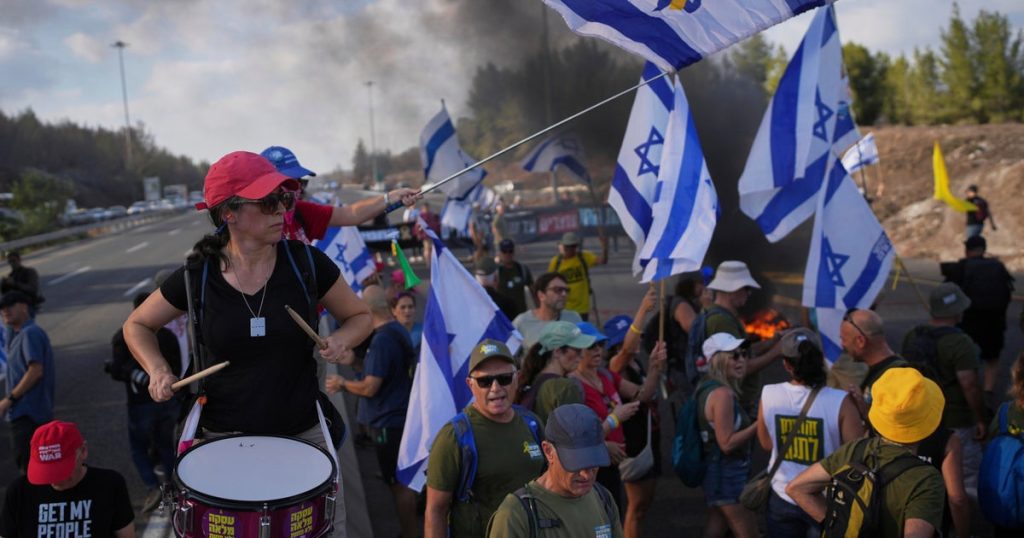Nationwide Strike in Israel for Hostage Release and Ceasefire
On Sunday, demonstrators across Israel held a nationwide strike, pressing for a ceasefire with Hamas and the release of hostages still held in Gaza. The “day of stoppage” involved roadblocks and business closures, reflecting escalating public frustration after 22 months of conflict.
Police Response to Protests
Authorities reacted to the protests with water cannons and numerous arrests. In Tel Aviv, police intervened when protesters attempted to access the Ayalon highway, resulting in skirmishes and the confiscation of protest materials.
Groups Behind the Protests
The “day of stoppage” was coordinated by organizations representing families of hostages and those grieving losses. This event followed the release of videos by militant groups and Israel’s announcement of a new military offensive in densely populated Gaza areas.
Emotional Appeals from Protesters
Protesters voiced concerns that ongoing hostilities could jeopardize the fates of approximately 50 hostages believed to still be in Gaza. They chanted, “We don’t win a war over the bodies of hostages,” emphasizing the urgent need for a resolution. Many gathered at significant points across the country, including outside governmental buildings and on major roads.
Political Reactions to the Demonstrations
Prime Minister Benjamin Netanyahu criticized the protests, suggesting they played into Hamas’s hands. He emphasized that calls for an end to hostilities without eliminating Hamas would only lead to further violence. Cabinet members echoed these sentiments, asserting that any deals granting Hamas continued power were unacceptable.
Humanitarian Crisis in Gaza
As protests unfolded in Israel, the humanitarian situation in Gaza worsened, with reports of significant casualties from ongoing Israeli strikes. The death toll from starvation has surged, raising alarms globally, as many face dire conditions due to the blockade that limits aid access.
U.S. Visa Policy Changes
Recently, the U.S. Department of State announced a halt on visitor visas for individuals from Gaza, which raised concerns among humanitarian groups that these visas were crucial for those needing medical care abroad.



